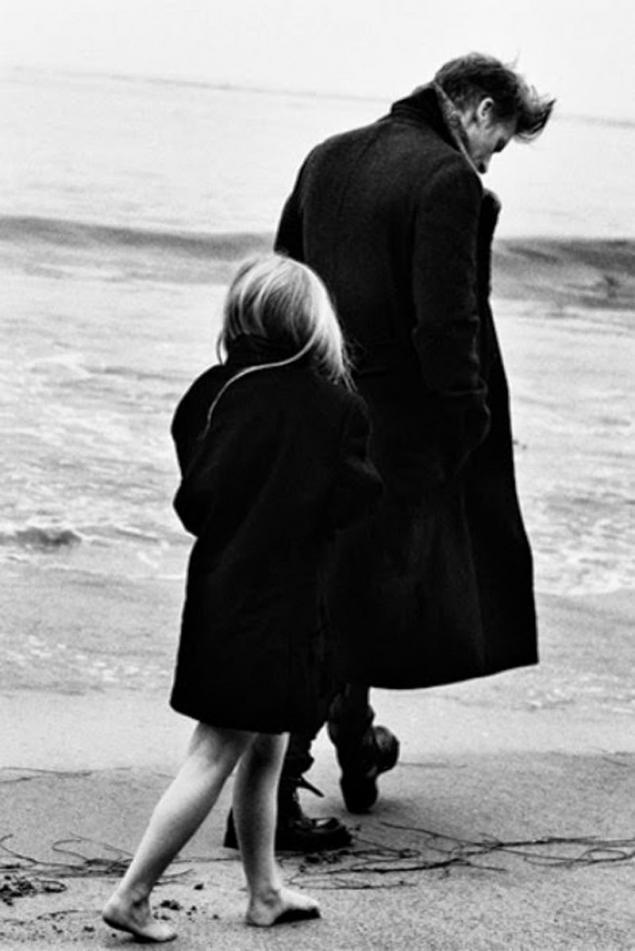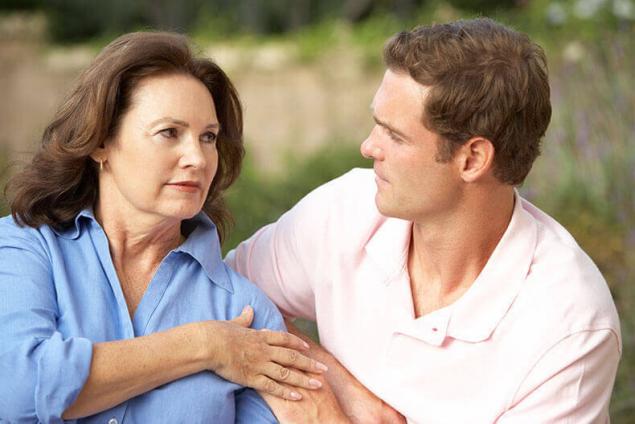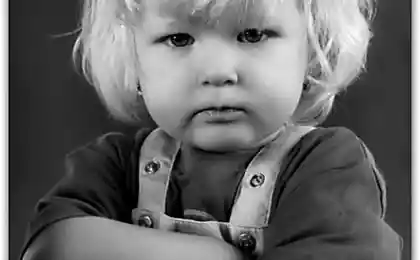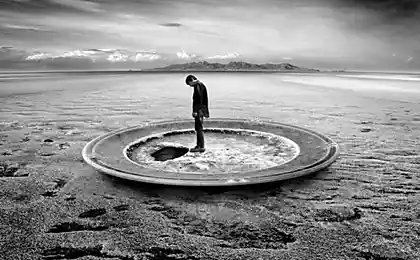922
5 myths about children and parents, which is to debunk
In my practice, I often face problems of separation, the impossibility of the other, has in fact grown children, to get rid of this dependence on parents.
I wanted to gather in one text all of the common "myths" and try to help the children to see them very soberly, and to parents try to understand their children.
Myth # 1. "Parents have been given life, and you're in front of them in debt"

If you understand rationally, you get this: the parents unilaterally made the decision about the birth of a new life. They didn't ask the child whether he wants to live with these parents, to be born in this time/ in this country/ in this social layer, etc. the Parents themselves wanted to decide themselves and brought themselves into this world a new person. For the consequences of their choice they are, therefore, absolute responsibility.
Many of my clients, being under the pressure of this myth fall into the trap:
- on the one hand, life is the great gift for which we should be grateful,
- with the other requirements of thanks from parents are sometimes so easy to make compatible with the life of the children themselves that the result is the protest against these claims, which is inevitably accompanied by guilt. It should be the same "all his life to pay the bills gratitude for the gift of life!"
And here I propose to reflect on the word "gift". Because most parents say "we gave you life, we gave". Not sold, not concluded the contract of compensated rendering of services is not invested in order to obtain dividends, as presented. That is, given the gift.
Do something for this child? In fact – no. And hard phrase of other protesters children in the spirit of "I didn't ask you to give birth to me and I owe you nothing" — alas, the harsh truth.
Look at the situation from the parents. We have to admit that in fact the decision about the baby few of them really understood.
Here are examples of the realities in which they lived, many parents of today's adult children: trying to keep the man child (if this fails, the mother often experiences an unconscious disappointment in the child that "has not fulfilled its function", and if the father, he often pours out his anger on the "pretext" that forced him to stay in the family, although too rarely is aware of this).
Or woman, seeing no other choice, gave birth to a child "for yourself", and then suffers from the fact that he doesn't want to devote my life to her.
Or a marriage that parents are kept only for children, later being unable to live with each other, constantly keeping adult children close by – so unconsciously trying to justify what went on, maybe they have unnecessary relationships.
Or the man who was convinced that "raising a son" — it was his duty, and the man sincerely, it would seem, waits for the offspring, and then suddenly realizes that all this is of no interest he is, and he doesn't know how to communicate with their children.
Those who would like to make a career or to live some other life, in which early-born children do not have the space shall be under the pressure of mothers and fathers: "to bring happiness to us grandchildren!" And then get annoyed at kids because they prevent them to live...
The examples can be long. The main thing is that most of these parents are not aware of their motives until the end. And sometimes I sincerely believe that demand reasonable things.
Returning to the subject of obligation, again run in to the same tune: how a small child can be held responsible for your expectations? How can he be responsible for what his mom or dad have not received love in abundance? Or because they simply had not thought in a moment of passion about whether they child at all at the moment? Or because someone of the parents were afraid to appear to others to have failed, and therefore decided to have the baby?
Alas, the harsh truth again is that this is the problem of the parent. But not the child. And we have to admit that for whatever reason the parent has not made a choice – the choice is the parent's choice as an adult. The choice to give life, not to sign a contract for a life annuity.
There is also a caveat: parents are often afraid (consciously or not) that the child will malokontroliruemyh that the parents will not his authority, and therefore, the arguments "because I'm your father/your mother, I brought you in this world, and why you should listen to me" becomes a daily reality.
As a result, the authority is won not through actions that could cause a child's respect, but through fear and pressure. That on its own effectively, but does not form a truly warm relationship between parent and child.
I suggest already grown-up children to think about a simple thing: if the parents so won the trust of the child if they fear that they will not listen – as they have in this case, it was the case with self-esteem? Would a confident person living a full life, happy and value myself, to put pressure on the child to "squeeze" him out of fear, guilt and duty? I think the answer is obvious.
And gratitude for life... She always is in those families where the parents have brought a child into the world deliberately, and understood from the start that came into the world a free man, which they can help to develop and then he will live his life and make his choice.
Parents, meanwhile, will live his. Where there is no pressure, strict requirements, intimidation and manipulation, children naturally Express their gratitude for the gift of life. Because I want to. Like the parents really wanted to help them grow. For the sake of the children, not for their expectations.
Myth # 2 "We've invested in you, we spend time with you!..."

If we talk about what the baby was fed, clothed, taught, treated and entertained – so everything just had to. A parent bringing a child into the world, takes on the absolute responsibility for the life and safety of the child. And so it is just what everyone needs child. At least the "most necessary for development and survival". Before reaching the age of majority. And it's even spelled out in our legislation.
If the parents really love the child – all this is done naturally as a matter of course.
However, very often parents put it in front of their children already growing up as a feat. Why? Yes, because in the process of raising a child parents imposed on themselves limitations. Which or didn't know in advance (again the same factor, unconscious relationship to the procreation), or believed that those restrictions – what then must be "paid back" to the same limitations of children in favor of the parents.
But such a contract is a contract blindly. Because the child sometimes doesn't even know about any restrictions. It seems that everything is done for him out of love and voluntarily. And then when it is put before the fact of the need to "pay the bills", the love of parents begins to fade. What child is often difficult to admit, and all this is accompanied by a latent sense of guilt and attempts to summon up the emotional attitude of parents that get worse and worse, because forced love is hard.
And in the end creates a sense that actually the relationship with parents – not a love relationship, and the relationship of the debt. Neither the parent nor the child do not receive them, welcome them both heat and gradually become disillusioned in relationships. But continue a policy of mutual manipulation either to the end or until one of them did not begin in earnest to understand the psychological underpinnings of what is happening.
Let us look at what parents put credit.
- Developed?
- Carrier sections, clubs, spending money on it?
- And take into account whether the wishes of the child or carried their unfulfilled desires?
- Learn to live, pass on your experience?
- And did this child's experience happy?
- Did something to the child, using the model of parents?
- Settings that the child is instilled, helped him to successfully occupy the niche in society and to be held, or at least to embark on this path?
- Family model of parents has a positive impact on the personal life of the child?
In fact, long-term practice shows that there are a lot of insecure people who are constantly criticized, criticized, and compared in someone's favor, but never showed how how. Or trying to teach, constantly humiliated.
And people often came out to meet the big world from a parent family with feelings of fear, inferiority, and the feeling that everything is better, worthier and more talented than him.
But the practice shows something else: when the child was given a chance to learn, supported in his errors, and helped to fix them and rethink, helping to make some steps in the big world, taking into account the desires and choices of the child (even if he seemed wrong parents) – then these children grow up with a natural sense of gratitude and responsibility. And if the parents were not forgetting about themselves, parents have been feeling a little "spent on child life," and therefore nothing to claim.
Latent grudge against your child for something that he did not "pay the costs" arises only where the investment of time and effort in the child was not quite voluntary.
But parents themselves should think: maybe, something I had to think about myself? Or not too late now to think? Not to do any of their own offspring an eternal debtor. Moreover, it may not always return the parent of the time the parent decided not to spend on themselves.
Of course, in other periods do all the time is spent on children, spouses leaving not much time at each other. But the result of this action depends on the mood of the spouses themselves. If the time was spent voluntarily, then the dividend already received creative impulses, interest, enthusiasm, joy, excitement associated with the achievements and development of children. Perhaps such parents develop themselves together with their children. And in the end they do not have resentment, "I spent this much time on you, and you...!"
But, unfortunately, there is again an unequal position: the parent himself took this step, having children, the child faced with the fact that now he has to spend so much time to parent as they want the latter. If the parent had a choice, the child it is not. At least as long as the child is under the pressure of authority and feels properly fulfill every whim of the parents.
Often, all the time spent on children because parents have no meaning in life. No matter whether two parents or one.
- If one then often the child is the only meaning in life, and sometimes it comes to the fact that the mother wants to see their child as focused on her as she was focused on it.
- But if two parents – then they may have lost feelings for each other might not want to get serious with their relationship, believing that they "fulfil an important mission."
But because children grow up and go into our lives (if we talk about the norm) and the parents stay with each other. And the problem is parents who don't want to do his relationship and his personal life is that children, even as adults, and having the need to build something different, continue for parents to stay or "glue" their crumbling marriage, or a sense for a lone parent.
But the child is not an attribute, not a function. He did not choose his parent as his own child and should not in a similar way to return the lost time. And he can't be any "glue" or meaning. He exists by himself, in his life and with his free choice.
Myth # 3 "I know it better, I wish you good — justify my expectations!"Strange not to have expectations. Naturally, we expect something from your partner, friends, children. But in the relations of the times when you have these expectations are correct.
And often for some reason in the relations with children are least likely to meet the expectations of correction and compromise, although with marital people at least have if not try to understand, at least to consider the interests of the spouse.
But the children are often different attitude – "you should" (to live by certain principles, to choose such a profession, to get married, to please us, their grandchildren, to achieve financial well-being, etc., etc.).
I'm not talking about those moments that parents have to demand from the child to keep him safe is to wear a hat in cold weather or not to run on the roadway. I say that does not threaten the safety of the child and may be his free choice – what to do, how to spend free time, what Hobbies to have, with whom to meet, when to marry etc.
But the habit of demanding to wear a hat in cold weather fades into a requirement to choose the profession of a lawyer, "because by singing you'll never make bread". This is not a security requirement. And often it extends to a child who either is on the threshold of 18 years or even crossed it. And the requirement extends so as if the child is 5 years old.
If you think about it, even at 5 years the child has and should have a choice – eat cereal, or cheese, to put on a green sweater or white, go for a walk in the Park or the Playground to ride the swings or the carousel. But the parents neglect this opportunity. They are often easier and faster to pull on baby's first sweater than to ask him what he wants (this takes only a few seconds!).
And we ended up in a huge amount of people who do not know how to make choices that are in panic afraid of mistakes, that all life depend on the "circumstances" of a different sort, to shift the responsibility on anyone for his life... Because of them there was always someone who said "do this" or "you should" or "you didn't have to know anything about life, and I..."
It's not true. The child may know a major thing about himself – what he wants. Yes, parents sometimes have to (and should) limit its volition where it intersects with the safety requirements. But we're basically talking about almost adult children who know that Smoking is harmful, and does not stand in the cold to walk around without a hat. They already know a lot and can gain their own experience, based on its present "want". However, at the moment they grow older they get more than criticism and disapproval. Why? Yes, because finally becomes clear – they grew up not the way I want them to be parents.
If you think about it, the parent requirements are often unfounded.
- The father requires the son of excellence in the sport or career, and critical of any failure for a long time already rested with a beer on the sofa with nothing much achieved in the business.
- Mother criticizing the appearance of her daughter and her taste in men, has long ceased to take care of myself, besides, her personal life is lame since youth.
Examples of this kind are many. Argument parents often like this: "we could not let our children..." — and that's a sincere wish of happiness. Although the choice of children is all irrelevant.
Moreover, if parents realized their dream and are unable to achieve something, they have no moral right to criticize the child. Often such parents there is still time ahead to realize themselves, to achieve something, to become happy.
There are a number of parents who actually achieved something took place, but no less tough call and criticize their children. The argument they often like, "I can and you should – you have someone who you can learn." But here's what I noticed watching these "perfect parents" — they are often inwardly very unhappy.
Though they "have everything", they even sometimes don't understand where this emotional void. Often it is the inability to consciously experience feelings and Express them often – from the lack of heat from the inner fear and the constant distrust of the world, the feeling of struggle and this lack of support. And social achievements can be present, of course.
But think about it: if the person is happy someone harshly criticize and demand something? If the person to impose life strategy, if he himself is comfortable in his choice, and this choice is made consciously? If he made it himself? Here suggests a simple conclusion:
if the parent made the choice himself, he will perfectly understand the value of their errors and their need. And just as clearly will understand that the experience of one person may not be completely projected on the other. Because they are different people. And there is no universal life strategy. So, it is easy to give the child the right to choose the error and your own experience.
But if a person chose not himself, and lived by the principle "should", "should", "accepted", and the child it will broadcast the same. Is there an underlying motive. If the parent himself was afraid of condemnation from society, family and environment, that all of his accents are shifted to the same contingent of people to perceive his children. And needs of the child literally melt in front of this onslaught of fear: "for the child's behavior will condemn me parent!" And he will be "tainted", for example, the fact that his son is gay and daughter at the age of 30 still not married, or who a child doesn't go to 9 for work, and lives a creative and free life, and not die of starvation (oddly enough).
Then there are more subtle motives. If life strategy is chosen not out of love and real desire, but out of fear, and something person inside the crushed, not implemented – that could be a factor of envy. Unconsciously often. But the essence remains the same. For instance, a father wanted in his youth to travel the country by hitchhiking, but becoming a victim of manipulation of their parents, did not dare to do what you want, and went to the factory to work. From the point of view of public opinion – the right choice. But the pain on remains undone. Because then family, children, status – and it's too late to hitchhike. But the desire remained youthful dream. And when own son collects backpack and talks about wanting to go – it is unconscious jealousy drives his father to put him on a rigid obstacle. History or repeated detail, or the son finds the strength to leave. And then the relationship is permanently broken, what can the not all children.
Parents, outraged by the behavior of their children wonder why the children "is so unlike them." But actually here they prevaricate. Rarely in the family the child grows up with very different orientations. So, too, sometimes, but much less frequently. The same problems, flaws, complexes, difficulties carrying from generation to generation.Just parents often do not want to admit that they see children their own shortcomings and defects. I want to be better and know better. Though declared the opposite: "the children surpassed the parents."
Myth # 4 "a Parent is a special man, he will never abandon you and will not betray".

Of course, special. But not the fact that he is not capable of betrayal. And the fact that his program, shortcomings and complexes we carry. And it was he who put in us our strengths and weaknesses, suppressed or develop our talents, actualized character, formed beliefs, and scripts of life. First of all, parents – those whose reflection we are, the Luggage and the material from which we cut your life. And so, that's all. But the ability "not to quit and not to betray" is most often a choice of the parent. Which is not always unambiguous.
I often hear from their customers such stories: "I was bullied in school, but I didn't have anyone," "I first fell in love unrequited, but me parents just laughed", "I got fired from my first job, but dad said I blame myself", "I felt ugly and was waiting for help, but mother said with such an appearance I am never normally not marry." Can continue indefinitely.
To judge whether it can be considered a betrayal – is not within the competence of the psychologist. But you can say that parents have not had children the support they were hoping for. And his criticism and disdain only intensified the negative feelings of the children.
Meanwhile, sometimes others (teachers, friends, some just people from outside) provided this support.
I do not want to say that domestic person – above all enemies (though Jesus in the gospel are not afraid to say so, but I'm not a theologian, and I will not argue that Christ had invested in those words). I just want to say that from the parental support you are waiting for first of all. And then from all the others. And often do not get it from their parents. It is a fact that we have to admit, if I was in your family. And to look soberly at things – if you are faced with scorn, humiliation and reluctance to once again say a kind word – it's not called "special relationship". It is in fact not different from relationships of any other people who may laugh at you, humiliate or reject. We should not live in captivity of this illusion: if you are not supported since childhood, most likely, and more relevant to you is the same. Unless you make a conscious effort to build some other forms of communication with parents. But there's a caveat.
If parents taught children to ensure that they really support him – and he is likely to do the same thing naturally. And if you are not accustomed to seek support for themselves is not very logical. If the child wants — can he, by their own free will to invest efforts to inform parents of the possibility of some other relationship to each other. And do not want — it has the full right to refuse support, if he had it from my parents. And again this is the harsh truth.
Remember the story of the client who is married (in her confession, hoping to quickly "escape" from parents), marriage, as often happens in such cases, did not happen. A girl with a child I ask the parents if you can live with them until she had served the rest of the decree and find a job. Parents told her "of course you're our daughter, our blood."
And then the girl's life turned into hell. Because every day she was reminded how she is a loser, reproached the fact that help in caring for the child (although she never asked for and did myself), put on that tired screaming baby (which every day became more and more restless).
As soon as the opportunity arose to go to work, the girl immediately went from parents to a rented house, hired a nanny and a year and a half took me therapy.
The first six months almost every session she cried, repeating that he does not feel the love of parents, and feels tremendous guilt... And to work only with that guilt took six months. A year – to not be dependent on the views of parents, something to prove to them, to try to meet their expectations and stop trying to force yourself to love them and to help her stop feeling like the last loser, and somehow to see the virtues and strengths.
Can we call all this parental love and acts out of good intentions? The path is decided by the readers.
Often parents use this argument: "if I don't tell him/her it will be worse, if you say to strangers". What would be terrible if I say strangers? Maybe they'll do it more correctly, though, because they are social conventions? Or they did not see what I see the parents?
Myth # 5 "to be Offended by parents is a sin!"
You always want to ask "what will happen"? While, however, we are not talking about the celestial square, and even of the fact that the deification of parents.
Objectively, parents are our "primary gods", they have the power to punish and pardon, to give warmth and support, to help, to care or be angry and to limit everything.
The deity parents can not be good or evil by far. For a child it always contains elements of good, because the child has shelter, food, clothing and at least a minimal development opportunities just because he has parents (or the people that replace them – and still the child needs the parent deity).
But the amazing paradox: children grow up, and still for many parents continue to remain gods. And it is even sometimes not recognized. Although, in theory, a grown man can and must choose their gods (or even without them). And, it would seem, choose, Christ or Allah, Buddha or the Principle of Tao, science or any other belief system. But parents remain for many much more powerful gods.
What is behind this? Fear. Not conscious, not intelligent, primal fear. And not of the child, and especially a parent. Remember the story of Saturn and Jupiter. Saturn devoured his children because he was afraid that one of them will take the throne and deprived of his power over the world. And in the end one of them, very prompt and lucky Jupiter still managed to survive, and what did he do? Of course, overthrew his father and took the throne.
What are the consequences of toppling from the pedestal of the parents? Nothing. No terrible punishment for it is not provided. Moreover, if you put parents down on earth, you will do them a good deed. How?
One digression. It may seem to many that in this article I speak "lawyer" growing up and grown-up children (and more often turn to them because most often they're my customers), and their parents "attorney". So the answer to the question "how" I want to balance the situation, because in fact, understand the motives and the other.
Yes, it would be good if they always gave you support. And criticized on every occasion. And would not compare with others. It would be good. But they shouldn't. They had you only in terms of security and livelihood, and did it as best they could, and loved as best they could. Do not ask them in response of forgiveness and understanding. Don't require that they suddenly got rid of biosocial reflexes. Don't require that in a matter of days they opened the breadth of thinking. If you take their freedom – give them their freedom to be so – wrong, demanding, oppressive.
The formula for freedom is simple.
- They have the right to want. You have the right to refuse.
- They have the right to be offended and respond to you as anyone. And you have the right to respond to their reaction as they see fit, or not respond at all.
Author: Anton Nesvitski
P. S. And remember, only by changing their consumption — together we change the world! ©
Source: zerkalodushi.org/parents-children/























